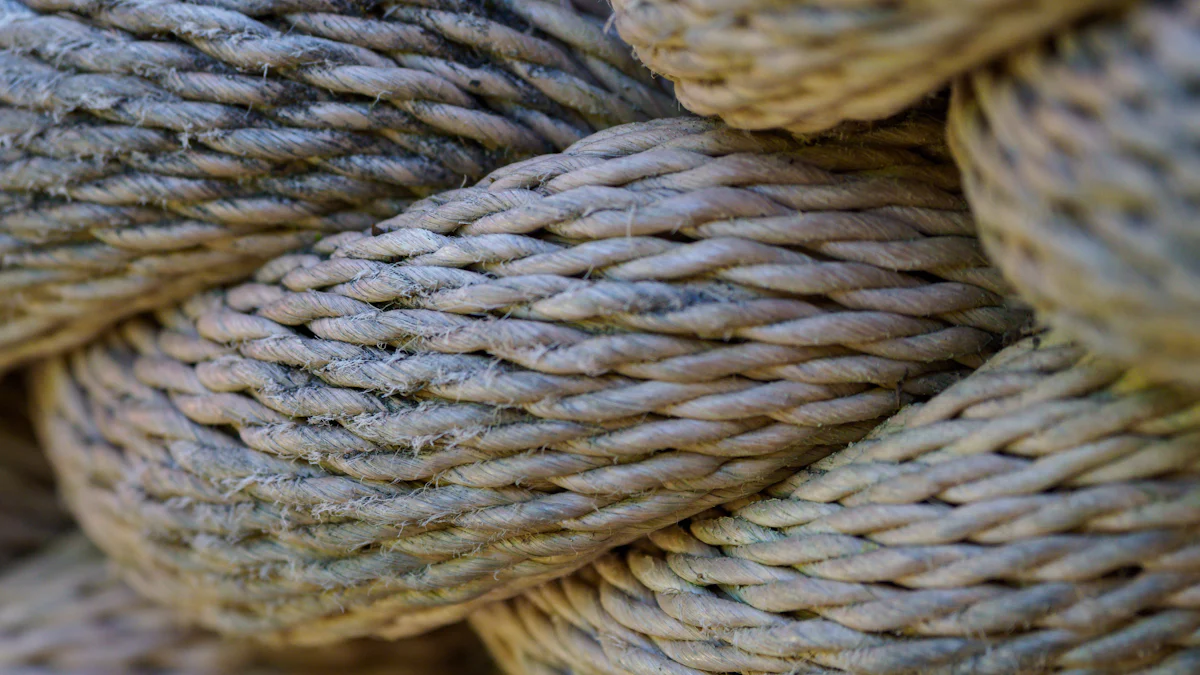
Jindun’s JD-TG2787 FTBK Styrene-Based Modified TPE revolutionizes cable sheathing with its superior flame retardant properties and mechanical performance. This innovative material tackles common sheathing issues, ensuring cables remain reliable and safe. It offers enhanced protection against environmental factors, making it ideal for demanding applications. The FTNC Styrene-Based Modified TPE stands out as a robust solution, providing durability and resilience in various industrial settings. Its unique composition ensures that cables withstand harsh conditions, maintaining their integrity and functionality over time.
Key Takeaways
- JD-TG2787 FTBK Styrene-Based Modified TPE offers superior flame retardant properties, enhancing safety in environments prone to fire hazards.
- This innovative material significantly reduces cracking and brittleness, ensuring long-term reliability and flexibility in cable sheathing.
- With excellent abrasion resistance, JD-TG2787 FTBK extends the lifespan of cables by protecting them from wear and tear during installation and use.
- The TPE’s UV and chemical resistance safeguards cables from environmental degradation, making it ideal for outdoor and industrial applications.
- Using JD-TG2787 FTBK can lead to substantial cost savings by minimizing maintenance needs and reducing replacement expenses.
- The user-friendly application process of this TPE streamlines installation, enhancing productivity and reducing labor time.
- Real-world success stories demonstrate the effectiveness of JD-TG2787 FTBK in improving cable performance and reliability across various industries.
Common Cable Sheathing Problems

Cracking and Brittleness
Cable sheathing often faces the challenge of cracking and brittleness. Over time, exposure to environmental stressors can cause the material to lose its flexibility. This results in cracks that compromise the cable’s integrity. Cracking not only affects the appearance but also the functionality of the cables. Brittleness makes the sheathing more susceptible to damage during installation or maintenance. Ensuring the sheathing remains pliable is crucial for long-term reliability.
Abrasion and Wear
Abrasion and wear present significant issues for cable sheathing. Cables frequently encounter friction from contact with other surfaces. This constant rubbing can wear down the sheathing, exposing the inner components. Abrasion reduces the lifespan of cables and increases the risk of electrical failures. Selecting materials that resist wear is essential for maintaining cable performance. Durable sheathing protects against the mechanical stresses encountered in various applications.
Environmental Degradation
Environmental factors play a critical role in the degradation of cable sheathing. Two primary concerns include:
UV Exposure
Ultraviolet (UV) exposure poses a threat to cable sheathing. Prolonged exposure to sunlight can cause the material to degrade. UV rays break down the chemical bonds in the sheathing, leading to discoloration and weakening. This degradation affects the cable’s structural integrity and performance. Using UV-resistant materials helps mitigate these effects, ensuring the sheathing remains robust under sunlight.
Chemical Resistance
Chemical exposure can also degrade cable sheathing. Industrial environments often expose cables to harsh chemicals. These substances can react with the sheathing material, causing it to deteriorate. Chemical resistance is vital for cables used in such settings. Materials that withstand chemical interactions maintain their protective properties. This resistance ensures the cables continue to function effectively, even in challenging conditions.
Properties of JD-TG2787 FTBK Styrene-Based Modified TPE

Flame Retardancy and Heat Resistance
JD-TG2787 FTBK Styrene-Based Modified TPE excels in flame retardancy. This property ensures that cables remain safe in environments prone to fire hazards. The material resists ignition and slows down the spread of flames. This feature is crucial for maintaining safety standards in industrial applications. Additionally, the heat resistance of this TPE allows it to perform well under high temperatures. It maintains its structural integrity, ensuring that cables do not fail due to heat exposure. This combination of flame retardancy and heat resistance makes it a reliable choice for cable sheathing.
Mechanical Performance and Durability
The mechanical performance of JD-TG2787 FTBK Styrene-Based Modified TPE stands out. It offers excellent tensile strength, which ensures that cables withstand physical stress. This strength prevents damage during installation and use. Durability is another key feature. The material resists wear and tear, extending the lifespan of cables. Its robust nature ensures that cables remain functional over time, even in demanding conditions. This durability reduces maintenance needs and enhances the overall reliability of cable systems.
Environmental Protection
UV Resistance
JD-TG2787 FTBK Styrene-Based Modified TPE provides superior UV resistance. This property protects cables from the harmful effects of sunlight. UV rays can degrade materials, but this TPE maintains its integrity. It prevents discoloration and weakening, ensuring that cables remain strong. This resistance is vital for outdoor applications where cables face constant sun exposure. By using this TPE, industries can ensure long-lasting cable performance.
Chemical Resistance
Chemical resistance is another significant property of JD-TG2787 FTBK Styrene-Based Modified TPE. It withstands exposure to various chemicals found in industrial settings. This resistance prevents the material from deteriorating when in contact with harsh substances. Cables maintain their protective properties, ensuring safety and functionality. This feature is essential for environments where chemical exposure is common. The TPE’s ability to resist chemical interactions makes it a preferred choice for cable sheathing in such conditions.
How JD-TG2787 FTBK Solves Sheathing Problems

Addressing Cracking and Brittleness
JD-TG2787 FTBK Styrene-Based Modified TPE effectively tackles the issue of cracking and brittleness in cable sheathing. This material maintains flexibility even under harsh conditions. It prevents the formation of cracks that compromise cable integrity. Engineers have designed this TPE to withstand environmental stressors, ensuring long-term reliability. Its unique composition allows it to remain pliable, reducing the risk of brittleness during installation or maintenance. By using this advanced material, industries can ensure that cables retain their structural integrity over time.
Enhancing Abrasion Resistance
Abrasion resistance is a critical factor in cable sheathing. JD-TG2787 FTBK excels in this area by providing a robust barrier against wear and tear. The material’s high tensile strength ensures that it withstands friction from contact with other surfaces. This resistance extends the lifespan of cables, reducing the likelihood of exposure to inner components. Industries benefit from this durability, as it minimizes maintenance needs and enhances overall cable performance. The FTNC Styrene-Based Modified TPE offers a reliable solution for applications where mechanical stress is prevalent.
Improving Environmental Protection
JD-TG2787 FTBK significantly improves environmental protection for cable sheathing. Its superior UV resistance shields cables from the damaging effects of sunlight. This property prevents discoloration and weakening, ensuring that cables remain strong in outdoor settings. Additionally, the material’s chemical resistance protects against degradation from industrial substances. It maintains its protective properties even when exposed to harsh chemicals. This resilience makes it an ideal choice for environments where chemical interactions are common. By employing this TPE, industries can ensure that cables continue to function effectively, regardless of environmental challenges.
Benefits Over Traditional Materials

Cost-Effectiveness
JD-TG2787 FTBK Styrene-Based Modified TPE offers significant cost advantages over traditional cable sheathing materials. Manufacturers benefit from reduced material costs due to the TPE’s efficient production process. This efficiency translates into lower expenses for raw materials and manufacturing. Additionally, the durability of this TPE reduces maintenance and replacement costs. Cables sheathed with this material require fewer repairs, leading to long-term savings. Industries can allocate resources more effectively by choosing this cost-efficient solution.
Ease of Application
The application process for JD-TG2787 FTBK Styrene-Based Modified TPE is straightforward and user-friendly. Its flexible nature allows for easy handling during installation. Technicians find it simple to apply, reducing labor time and effort. The material’s adaptability ensures a snug fit around cables, enhancing protection. This ease of application minimizes installation errors, ensuring consistent performance. Industries appreciate the streamlined process, which boosts productivity and efficiency.
Case Studies and Examples
Industry Applications
JD-TG2787 FTBK Styrene-Based Modified TPE finds widespread use across various industries. In the automotive sector, it enhances the safety and reliability of electric vehicle charging cables. The material’s flame retardant properties make it ideal for this application. In telecommunications, it protects fiber optic cables from environmental stressors. Its UV and chemical resistance ensure long-lasting performance in outdoor settings. These examples highlight the material’s versatility and effectiveness in diverse environments.
Success Stories
Numerous success stories demonstrate the impact of JD-TG2787 FTBK Styrene-Based Modified TPE. A leading energy company reported a 30% reduction in maintenance costs after switching to this material for their power cables. Another telecommunications firm noted improved cable longevity and performance in harsh climates. These real-world examples underscore the material’s ability to solve common sheathing problems. Industries continue to adopt this innovative solution, reaping the benefits of enhanced cable performance and reliability.
JD-TG2787 FTBK Styrene-Based Modified TPE provides a comprehensive solution to cable sheathing challenges. Its unique properties offer significant advantages over traditional materials, ensuring enhanced performance and reliability. Industries benefit from its flame retardancy, mechanical strength, and environmental protection. By adopting this advanced material, companies can improve cable longevity and safety. The FTNC Styrene-Based Modified TPE stands as a testament to innovation in cable technology, encouraging widespread adoption for superior cable performance.
FAQ
What is JD-TG2787 FTBK Styrene-Based Modified TPE?
JD-TG2787 FTBK Styrene-Based Modified TPE is a high-performance thermoplastic elastomer. Jindun developed it to enhance cable sheathing with superior flame retardant properties and mechanical strength. This material offers excellent environmental protection, making it ideal for demanding industrial applications.
How does this TPE improve cable durability?
This TPE improves cable durability by providing exceptional tensile strength and abrasion resistance. It withstands physical stress and friction, reducing wear and tear. Cables sheathed with this material maintain their integrity over time, even in harsh conditions.
Why is flame retardancy important for cable sheathing?
Flame retardancy is crucial for cable sheathing because it prevents ignition and slows down the spread of flames. This property ensures safety in environments prone to fire hazards. JD-TG2787 FTBK’s flame retardant nature helps maintain safety standards in industrial settings.
Can JD-TG2787 FTBK withstand UV exposure?
Yes, JD-TG2787 FTBK provides superior UV resistance. It protects cables from the harmful effects of sunlight, preventing discoloration and weakening. This resistance is vital for outdoor applications where cables face constant sun exposure.
Is this TPE resistant to chemicals?
JD-TG2787 FTBK exhibits excellent chemical resistance. It withstands exposure to various industrial chemicals, maintaining its protective properties. This feature ensures that cables continue to function effectively, even in environments with harsh substances.
What industries benefit from using JD-TG2787 FTBK?
Industries such as automotive, telecommunications, and energy benefit from using JD-TG2787 FTBK. Its flame retardant and durable nature make it suitable for electric vehicle charging cables and fiber optic cables. The material’s versatility allows it to perform well in diverse environments.
How does this material reduce maintenance costs?
This material reduces maintenance costs by extending the lifespan of cables. Its durability minimizes the need for repairs and replacements. Industries experience long-term savings by choosing this cost-effective solution for cable sheathing.
Is the application process of this TPE user-friendly?
Yes, the application process of JD-TG2787 FTBK is straightforward and user-friendly. Its flexible nature allows for easy handling during installation. Technicians find it simple to apply, reducing labor time and effort.
Are there any success stories related to this TPE?
Numerous success stories highlight the impact of JD-TG2787 FTBK. Companies report reduced maintenance costs and improved cable longevity. These real-world examples demonstrate the material’s ability to solve common sheathing problems effectively.
How does JD-TG2787 FTBK compare to traditional materials?
JD-TG2787 FTBK offers significant advantages over traditional materials. It provides superior flame retardancy, mechanical strength, and environmental protection. Industries benefit from its cost-effectiveness and ease of application, making it a preferred choice for cable sheathing.
Post time: Dec-19-2024

